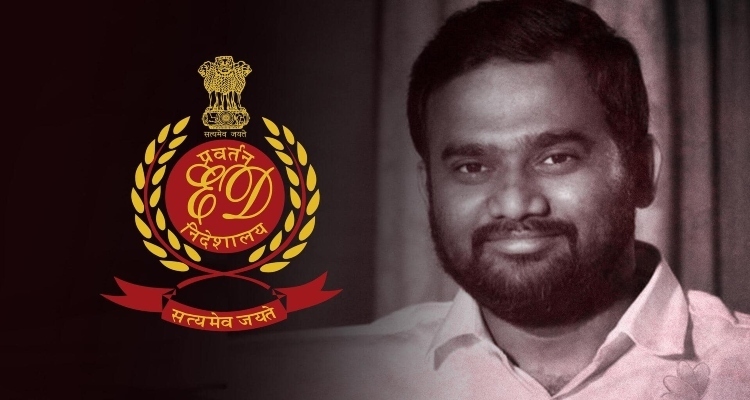
The Principal Sessions Court in Chennai has granted the Enforcement Directorate (ED) custody of former DMK leader Jaffer Sadiq for three days in connection with a money laundering case.
Principal Sessions Judge S Alli approved the three-day custody, though the ED had requested 15 days’ custody of Sadiq, who is also a film producer and was previously a DMK leader.
Sadiq is alleged to be the mastermind behind a drug syndicate that sent 45 consignments over the past three years to countries including Australia and New Zealand, containing approximately 3,500 kg of pseudoephedrine worth ₹2,000 crore disguised as food products.
In March, he was arrested by the Narcotics Control Bureau (NCB) in a drug trafficking case in Delhi.
Although the Delhi Court granted him bail, the ED arrested Sadiq at Tihar prison on June 26 in connection with the money laundering stemming from drug trafficking. After obtaining a prisoner transit remand, ED officials produced him before Principal Sessions Judge S. Alli on July 15.
The central probe agency filed an application for 14-day custody of Sadiq, stating that he was involved in exporting and concealing pseudoephedrine and other narcotic substances. He was linked with firms and entities involved in exporting narcotic substances under the guise of food products. Cash deposits were made into various accounts held by him, his family members, and entities controlled by him. These deposits are considered proceeds of crime generated from illegal activities. Sadiq was actively associated with various film directors and channeled money earned from drug trafficking into movie production under the JSM Picture banner.
The application argued that Sadiq’s custody is necessary as many aspects of the case need to be investigated. He has been non-cooperative, evasive, and misleading during the investigation thus far. Sustained interrogation for 14 days is required to uncover the trail of funds, corroborate evidence, and confront other persons involved in the case, according to the ED.




